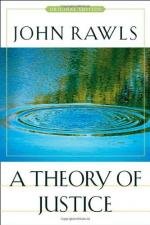|
This section contains 1,298 words (approx. 4 pages at 400 words per page) |

|
For Rawls all natural or fundamental rights, insofar as they are rights, strictly conceived, are necessarily embedded in the basic structure of societythat is, of some particular society. The basic liberties are goods of all people, everywhere and at all times. But they are realized as goods only in societyand for any individual, that means in some specific society. Thus, when we look at basic liberties, not as liberties but as constitutional rights, there is an important sense in which they are not "globalized," not spread, as it were, to the four corners of the earth as a single blanket of rights covering all peoples. As proper natural rights such rights enjoy, and can only enjoy, a local existence, in the basic structure of a given society.
Why should this be? Because, as I argued in the previous section, Rawls apparently believes that the basic...
|
This section contains 1,298 words (approx. 4 pages at 400 words per page) |

|




